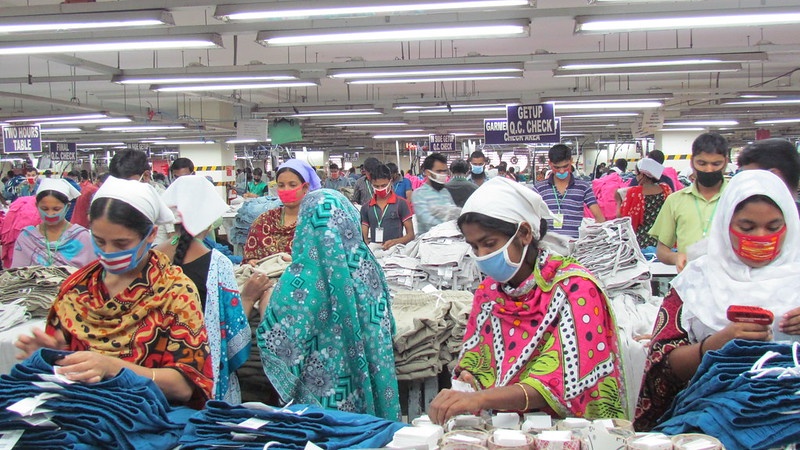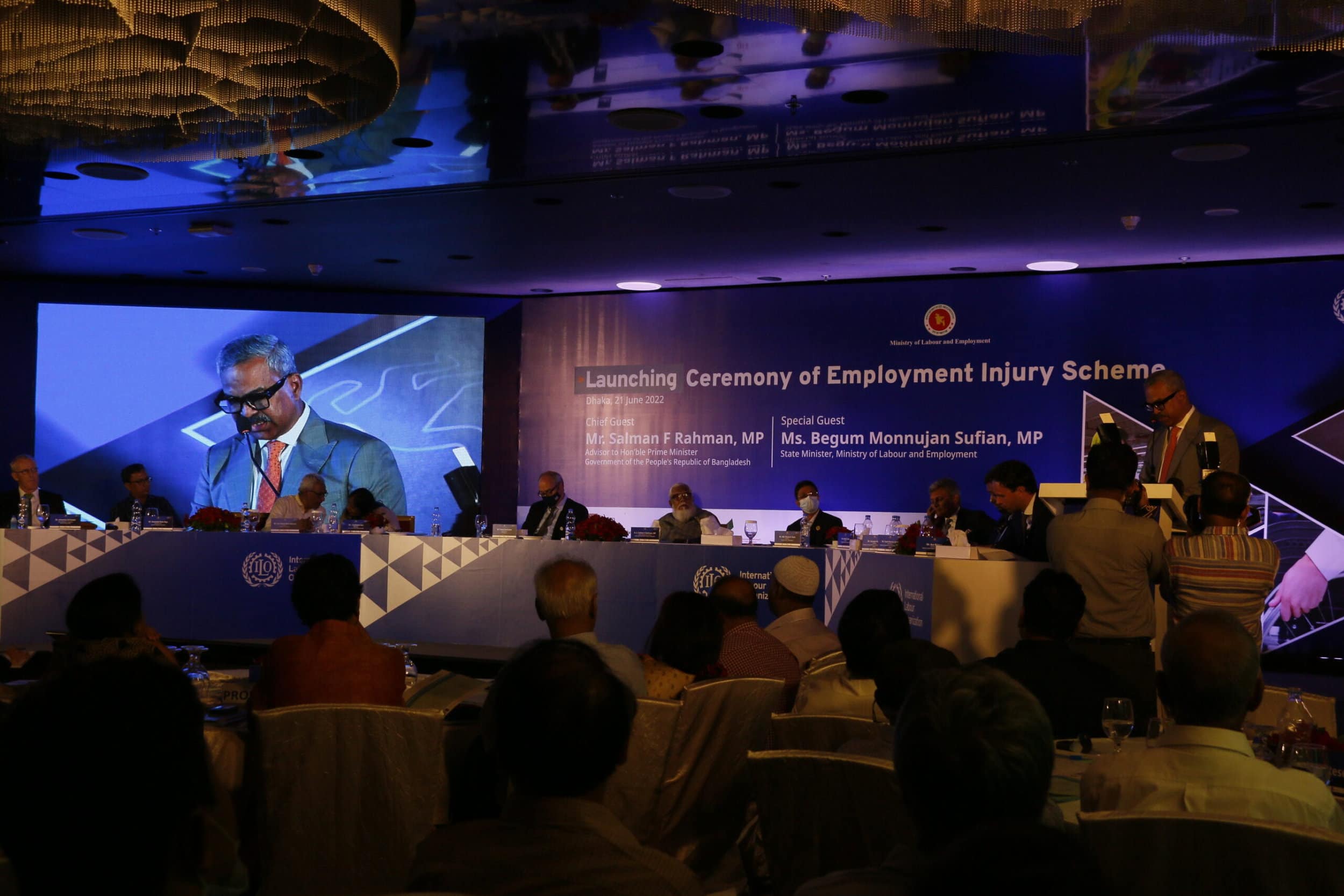NEWS
31
Mar,
2023
By: Staff Correspondent

The German government will give Bangladesh 7 million euro in grants to help provide social protection for workers of the textile and leather sectors.
09
Feb,
2023
By: Anne Marie La Rosa
.jpg)
The opinion and views expressed in this short article are the author’s own and do not reflect those of the International Labor Organization.
20
Oct,
2022
By: IndustriALL

Social protection is a recognized fundamental human right and could include sick pay, unemployment benefit and injury insurance. The pandemic brought home the precariousness of the garment industry’s production model, as millions of workers in countries with no safety net were left without pay as the industry came to an abrupt halt.
22
Aug,
2022
By: Ruth Evans

‘This is a historic day for Bangladesh’, declared Mohammed Eshan Elahi, Secretary of the Ministry of Labour and Employment, as he launched the country’s first employment injury insurance (EIS) scheme in Dhaka on 21st June 2022. This pioneering scheme, named EIS Pilot, will ensure that, for a trial period of three years, all workers in the export-oriented ready-made garment sector are for the first time ever eligible for work-place injury and disability compensation payments in accordance with international standards adopted by the ILO Employment Injury Benefits Convention, 1964 (No. 121). The ready-made garment sector is Bangladesh’s largest manufacturing industry and provides jobs to around four million people.